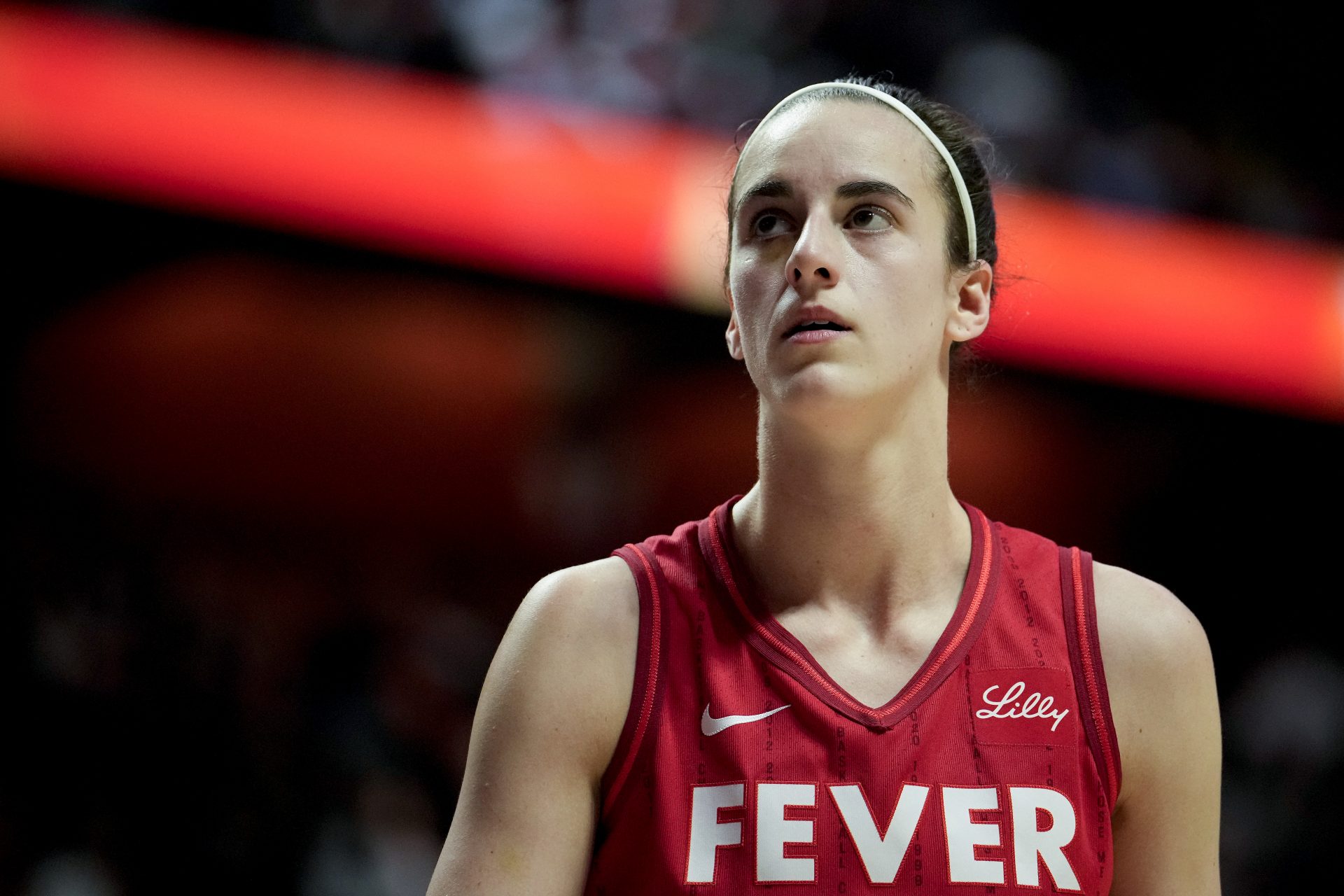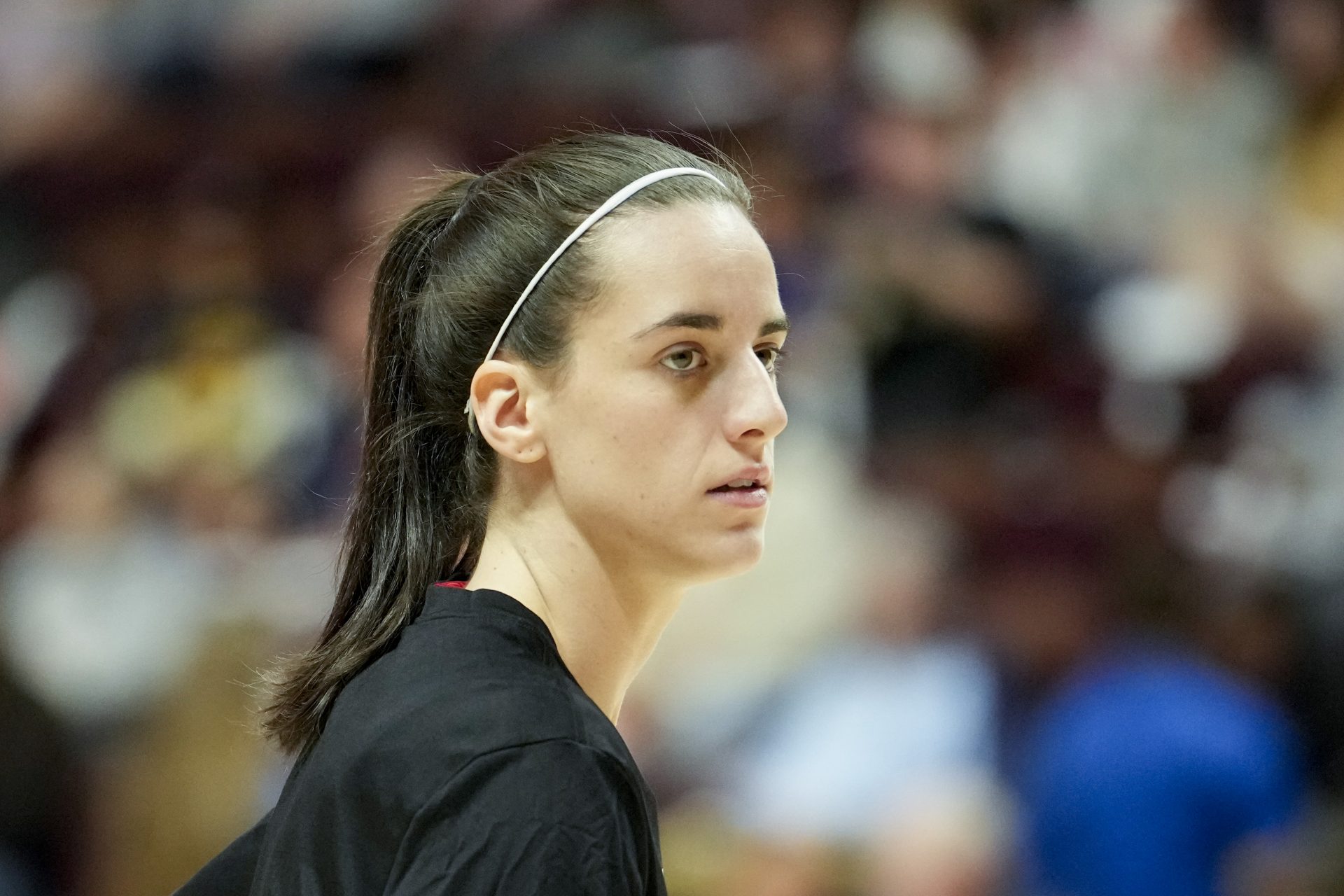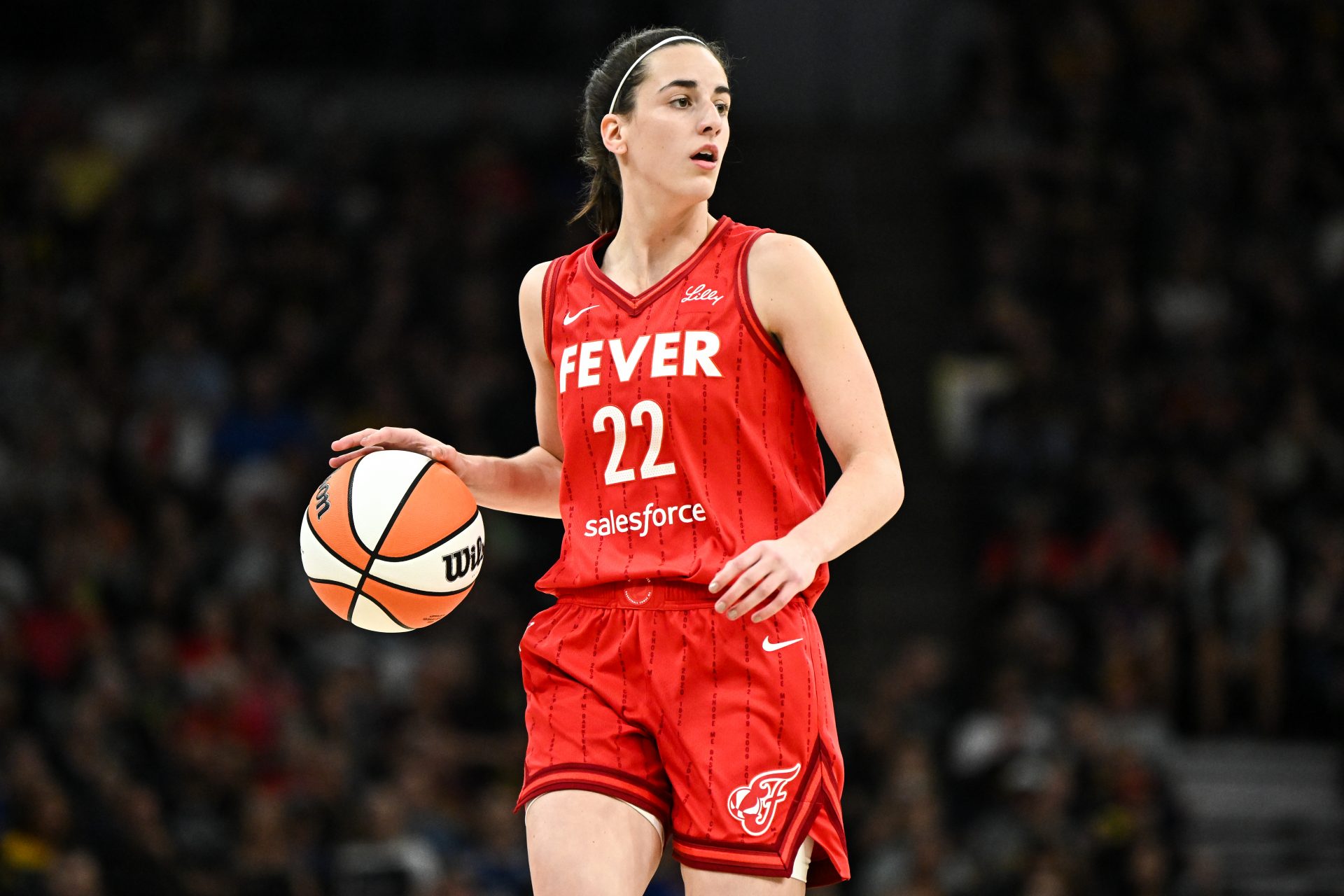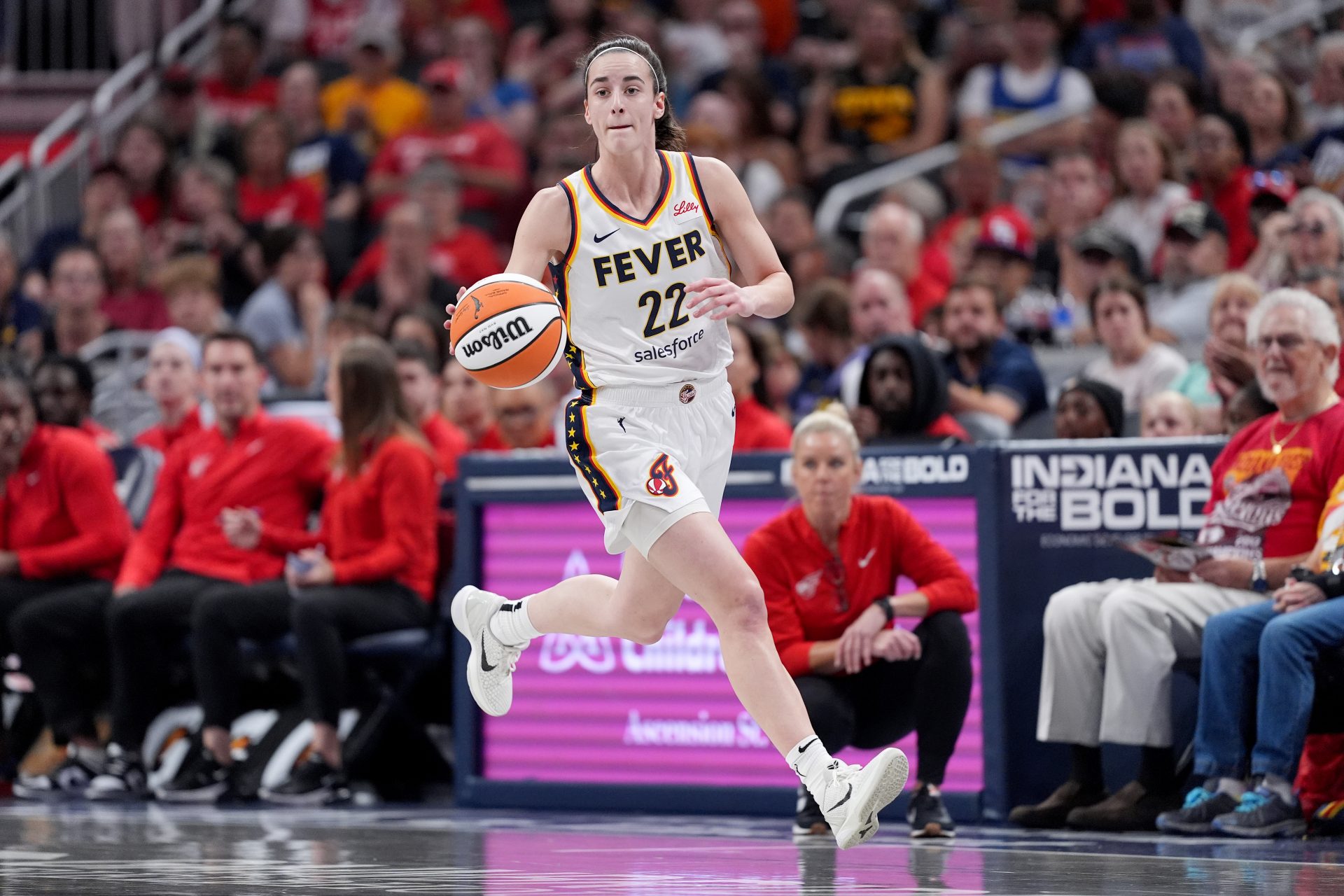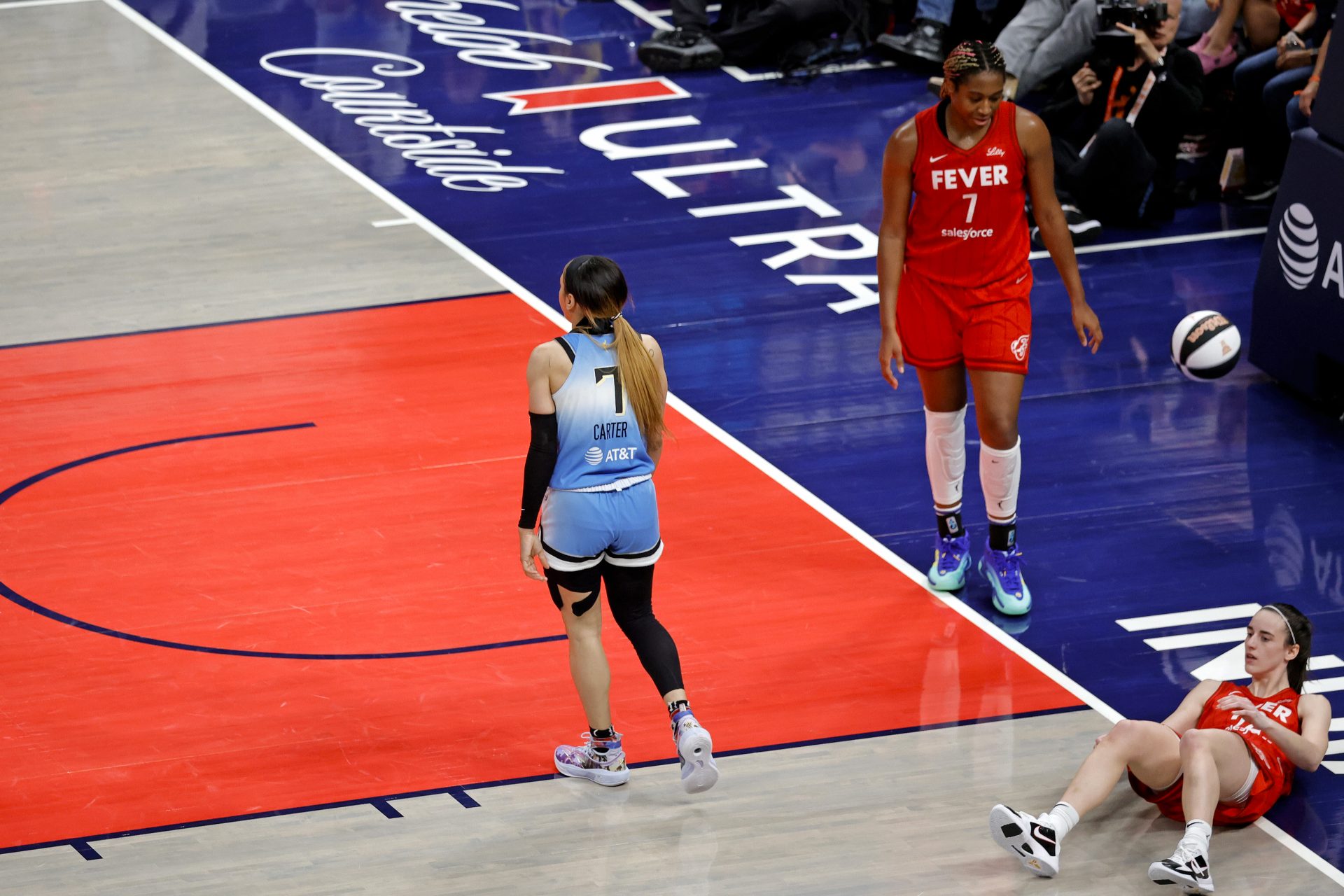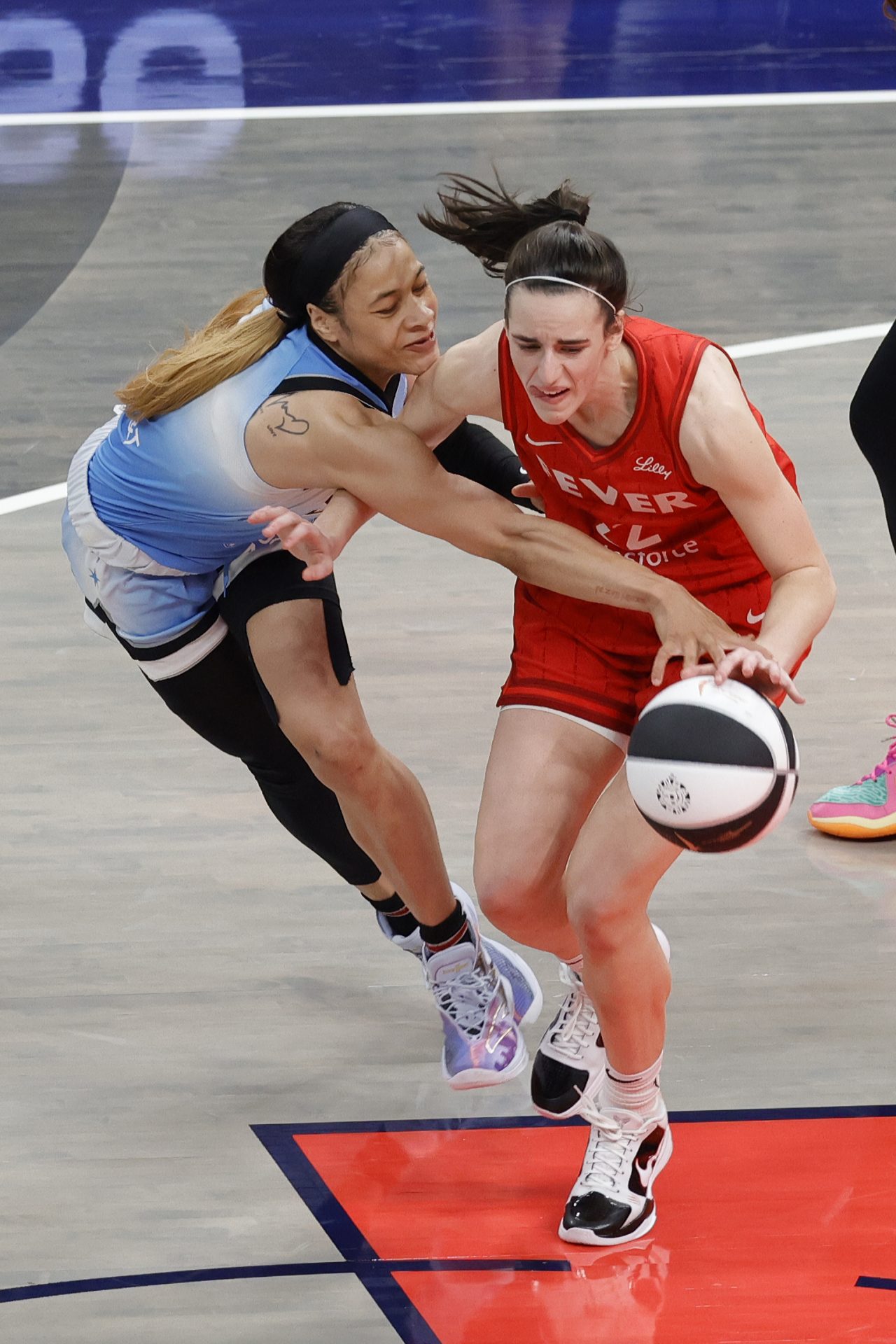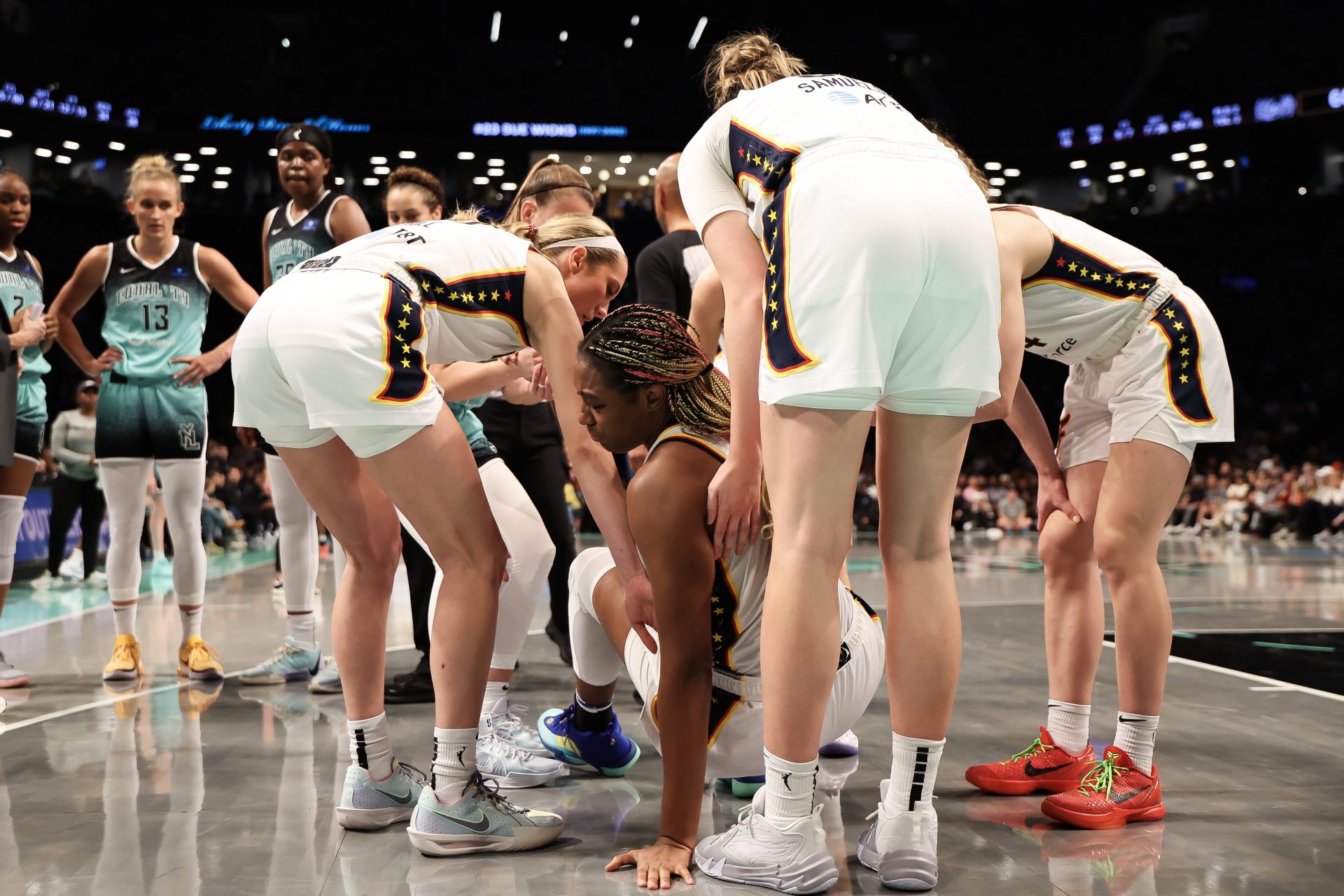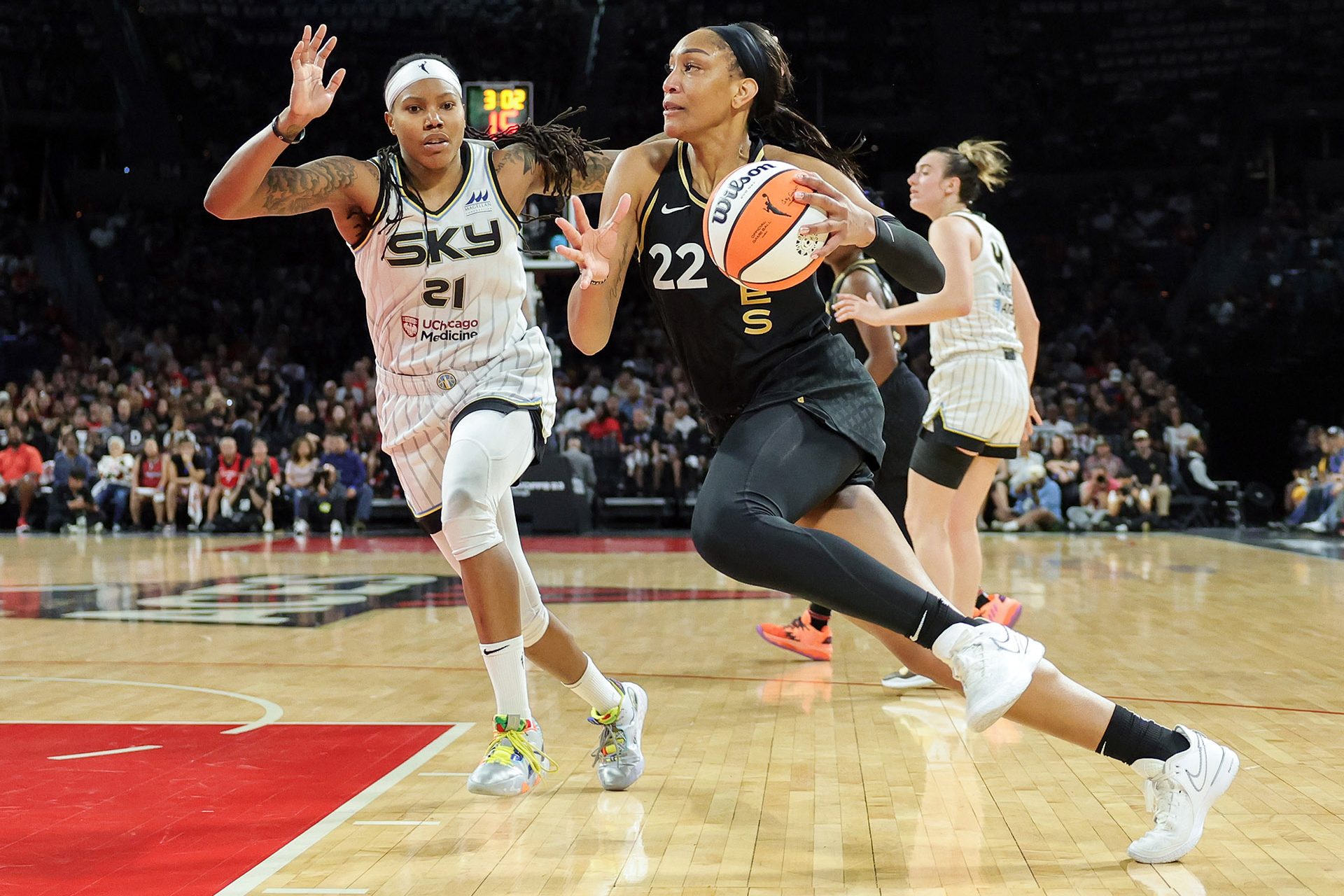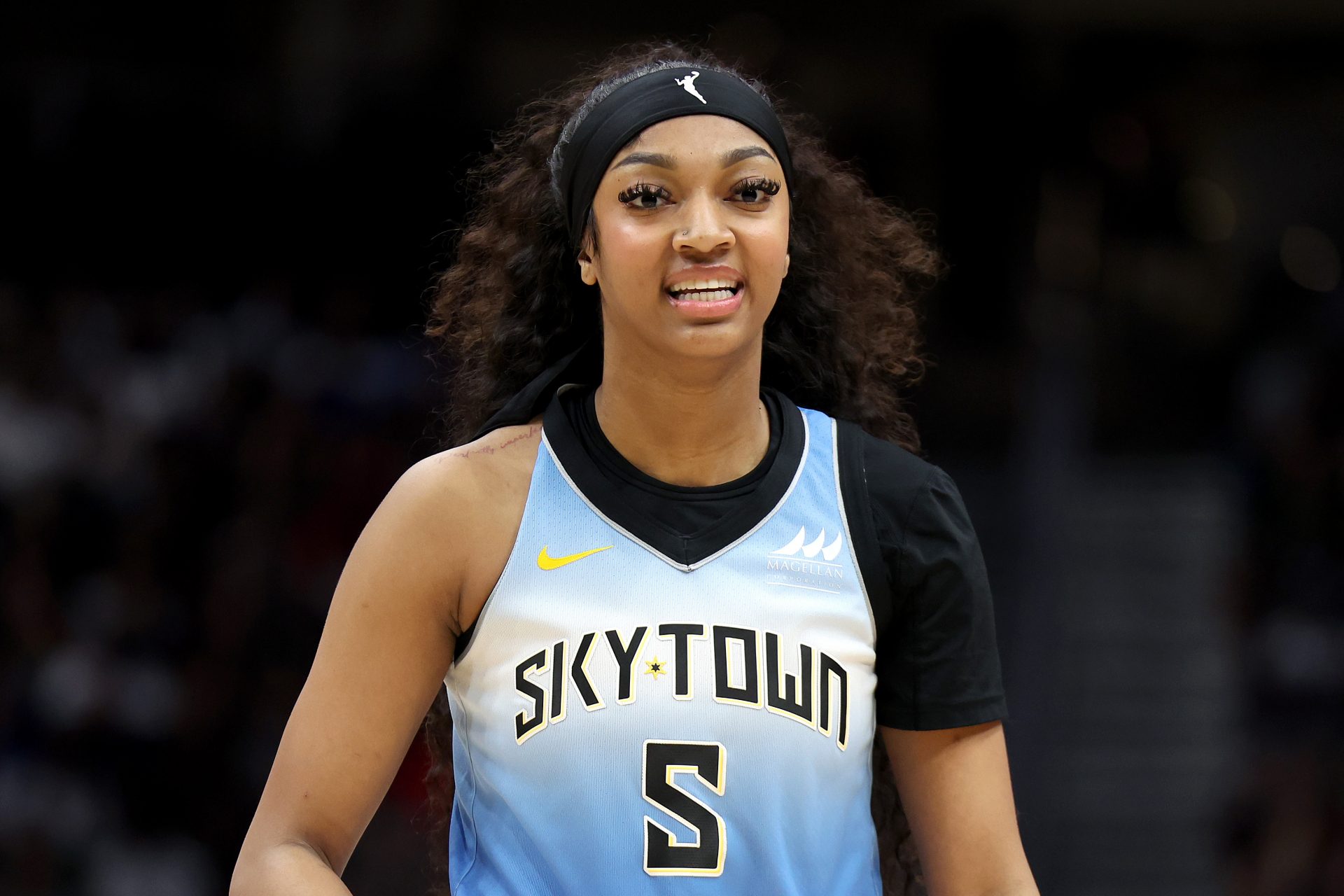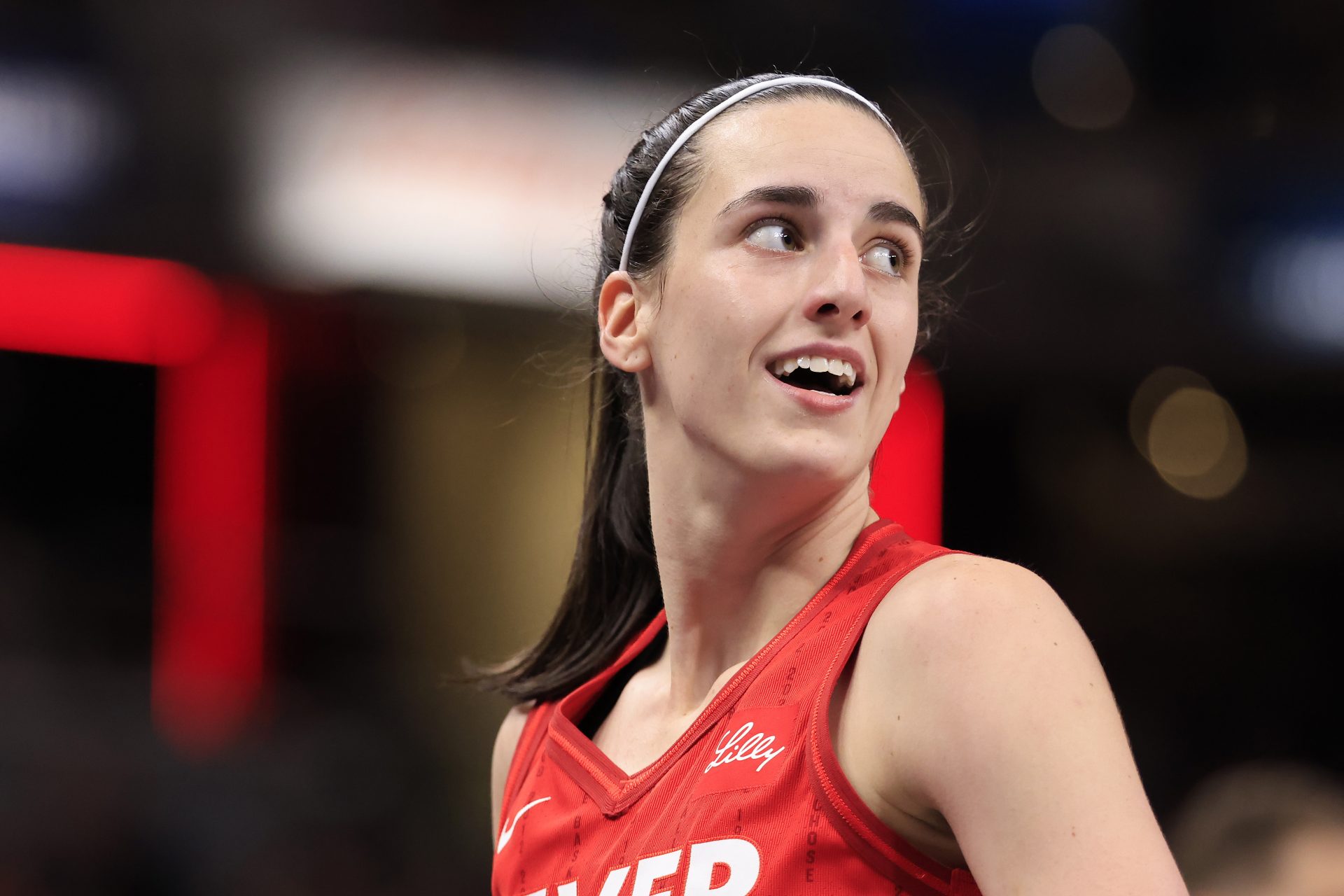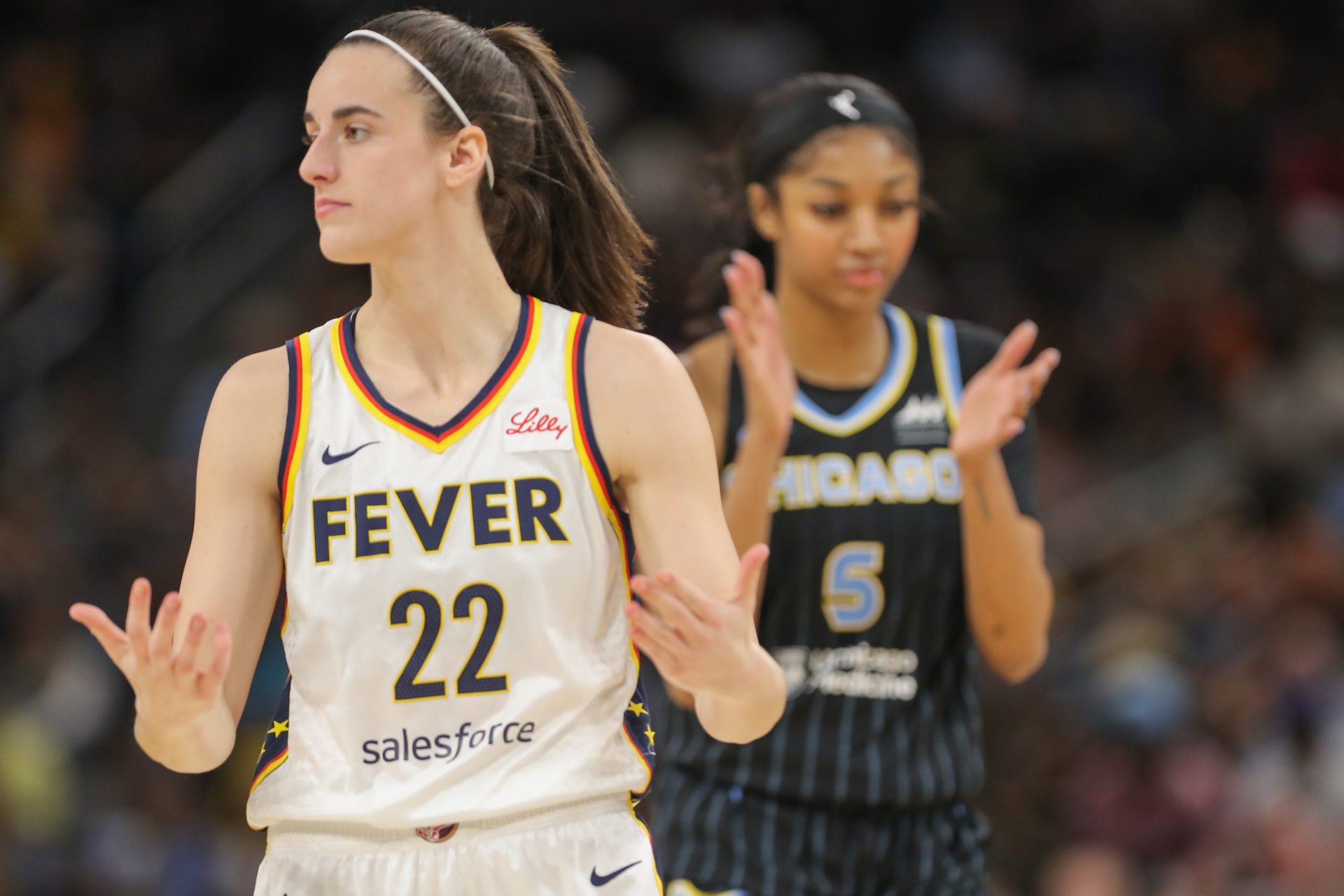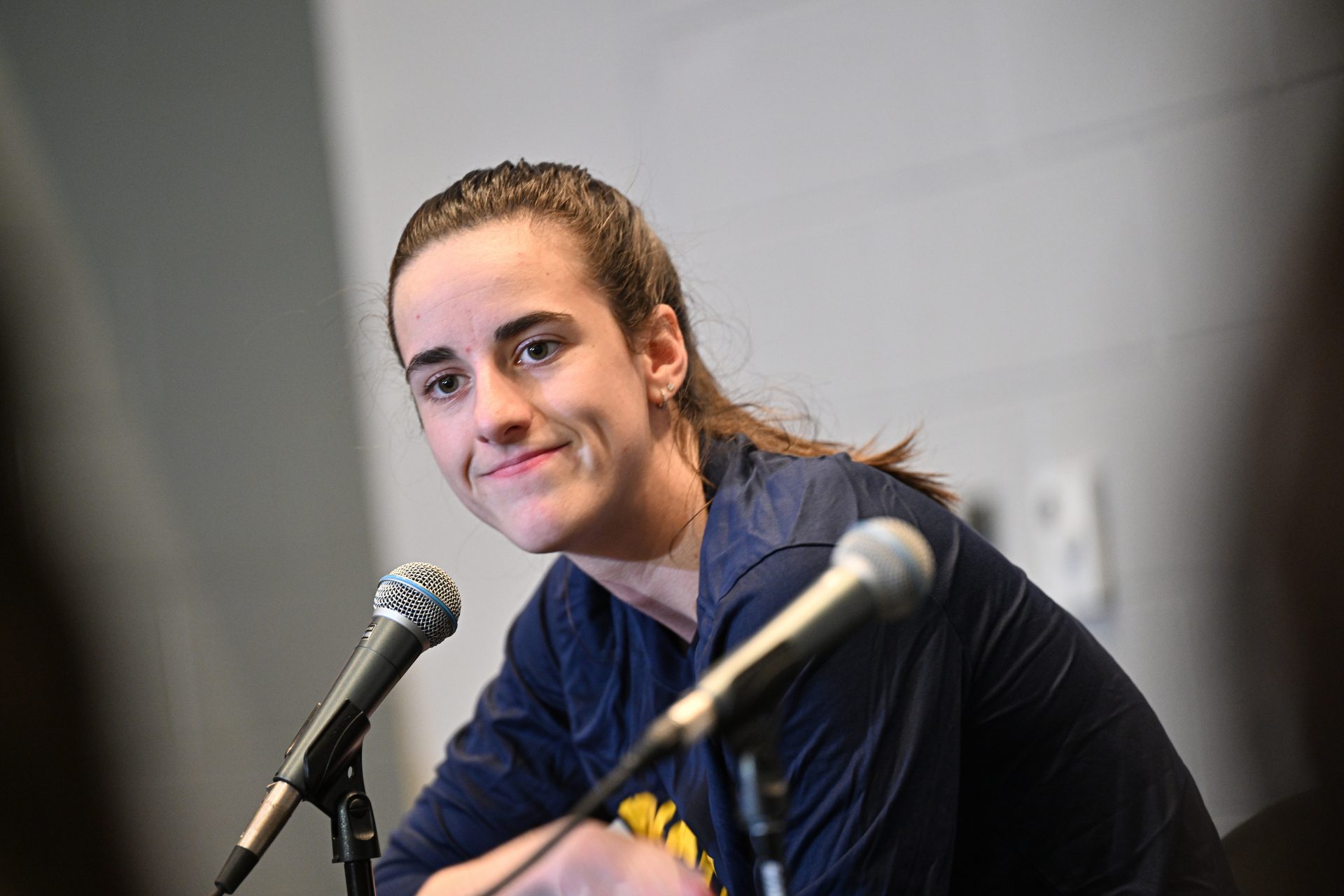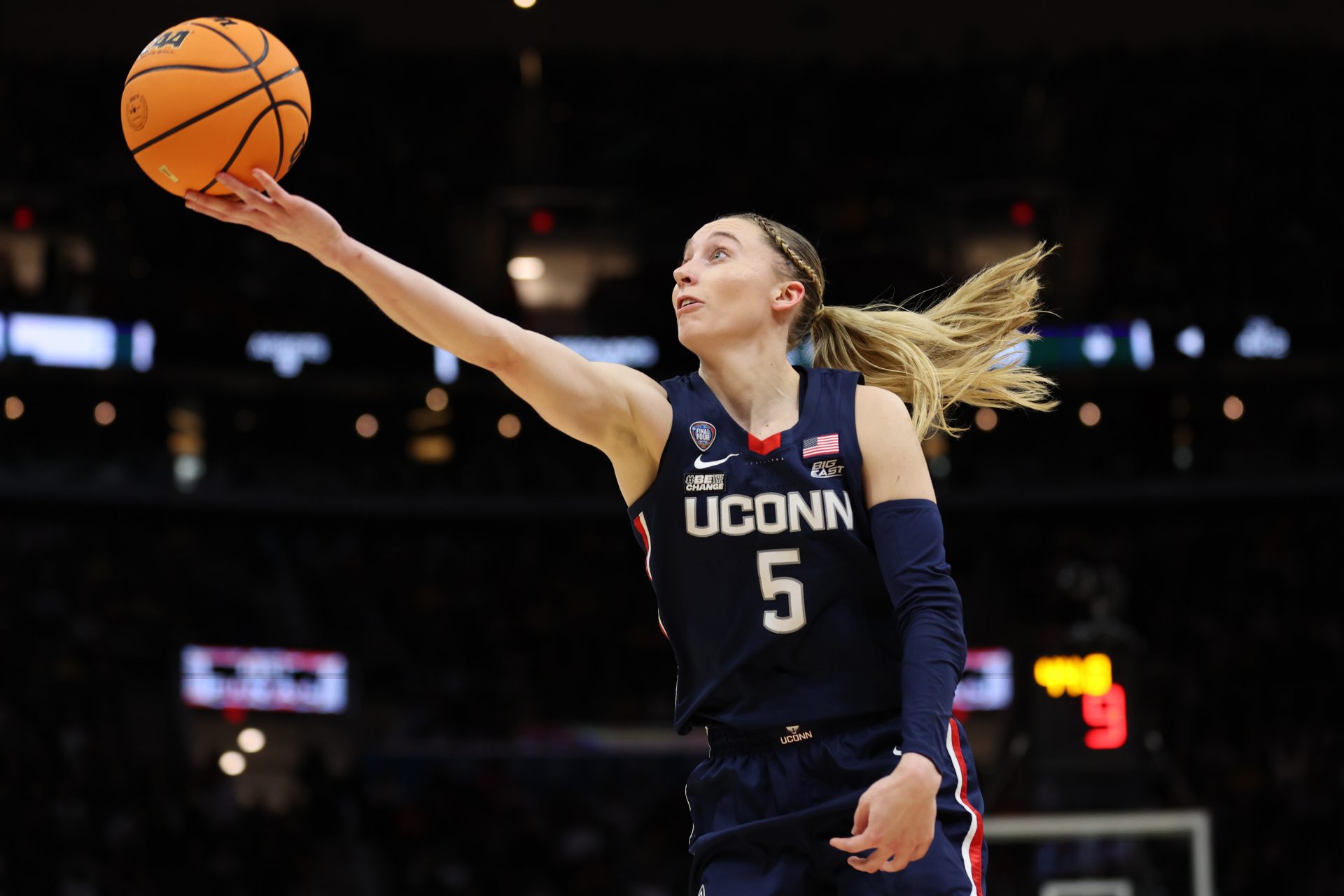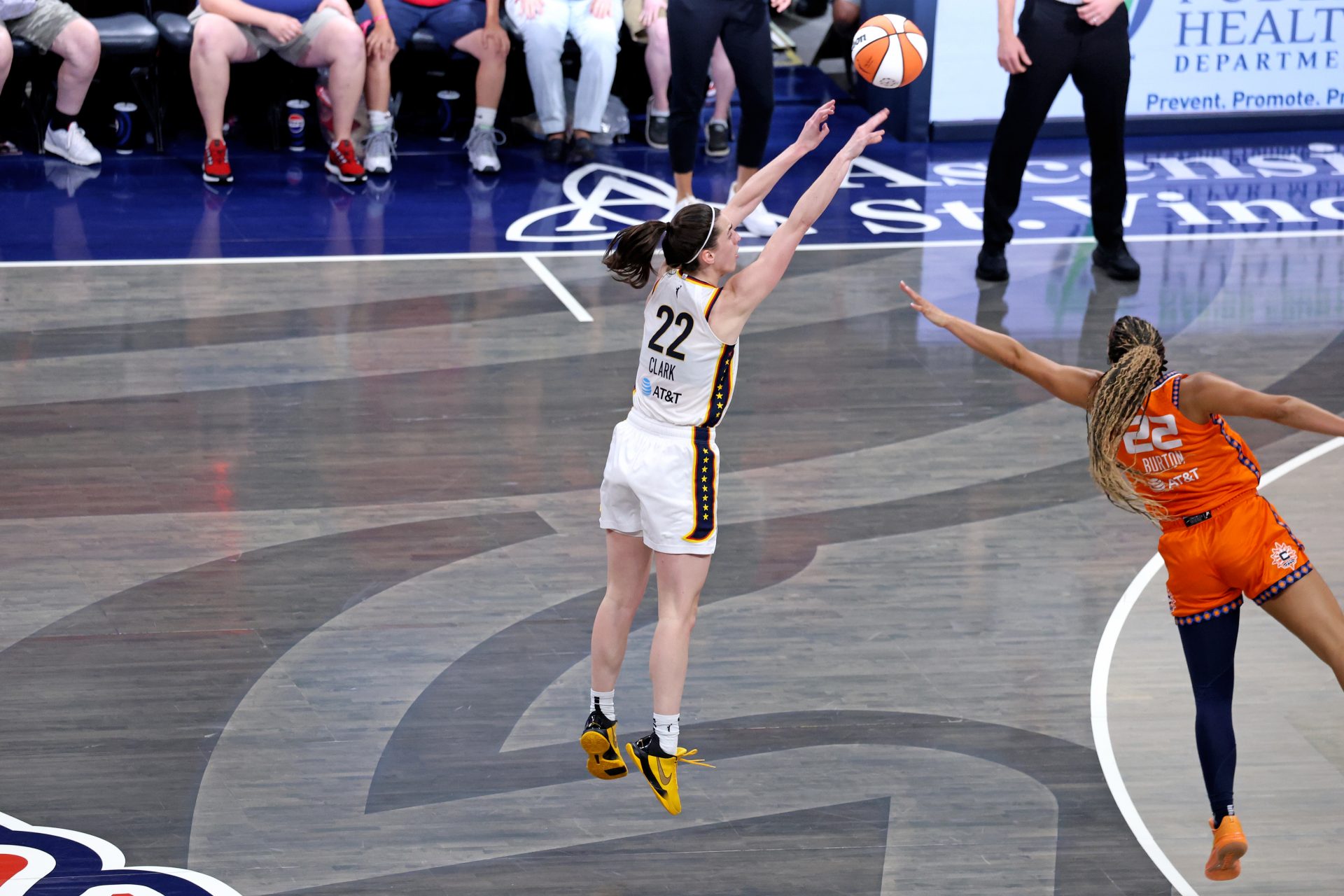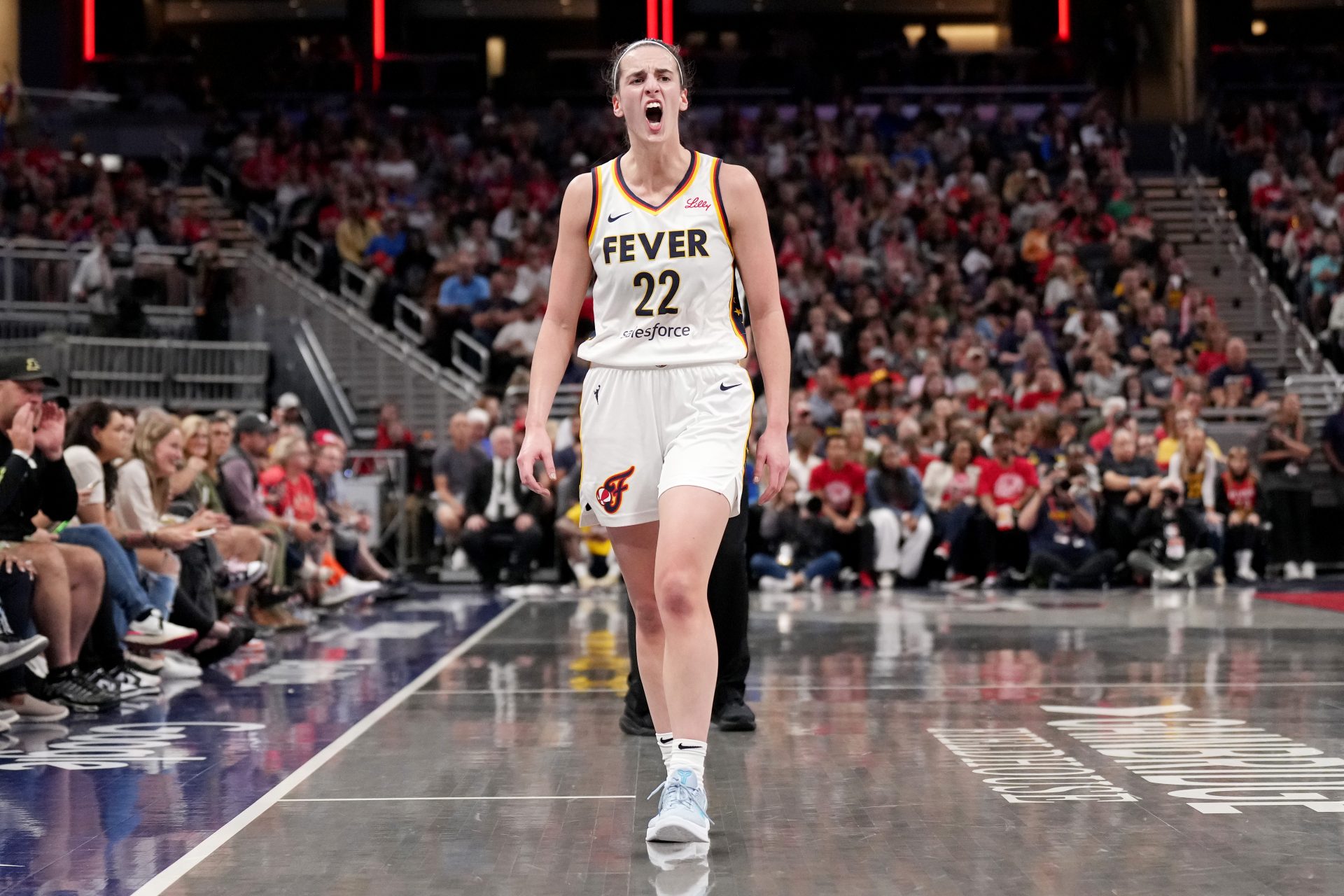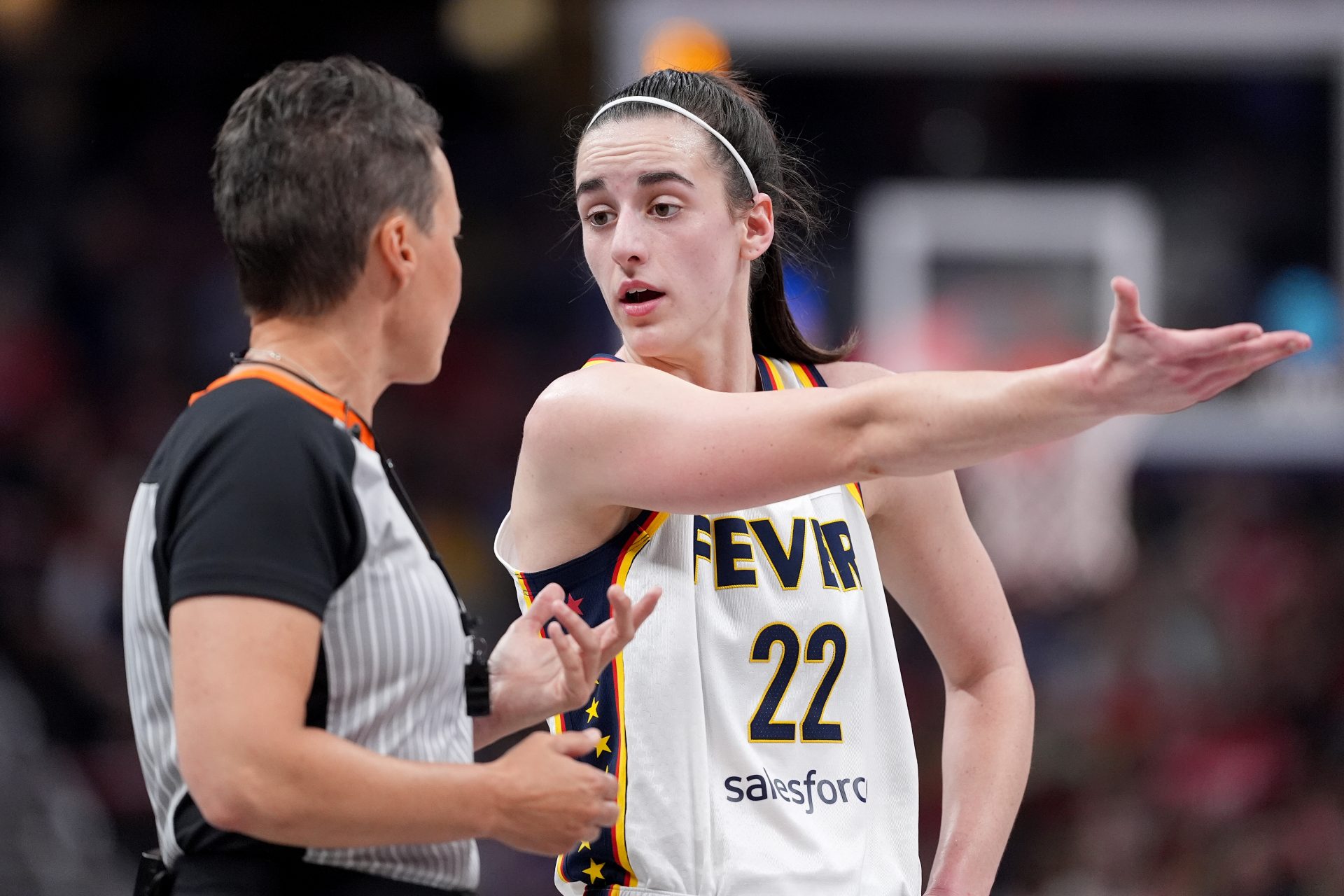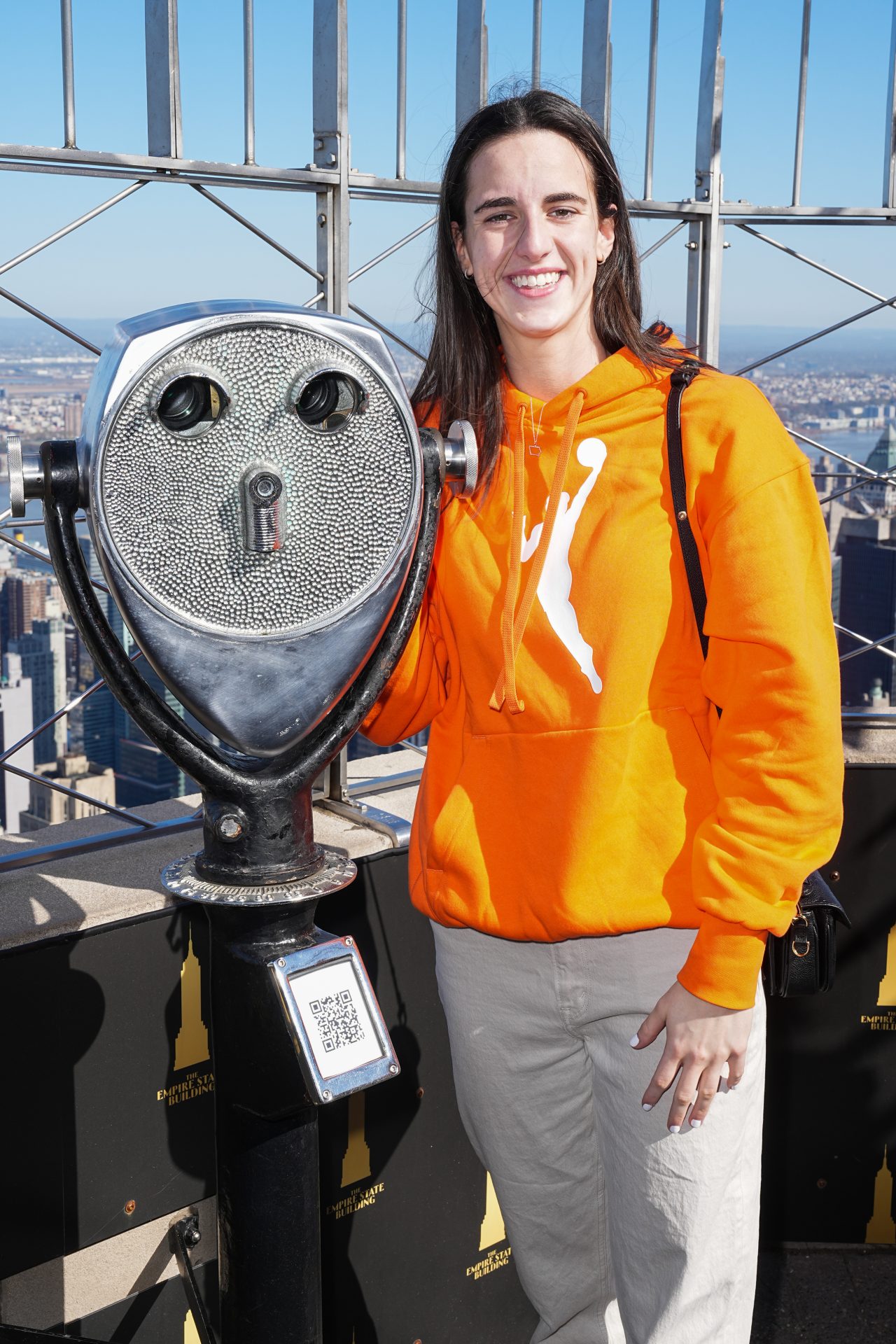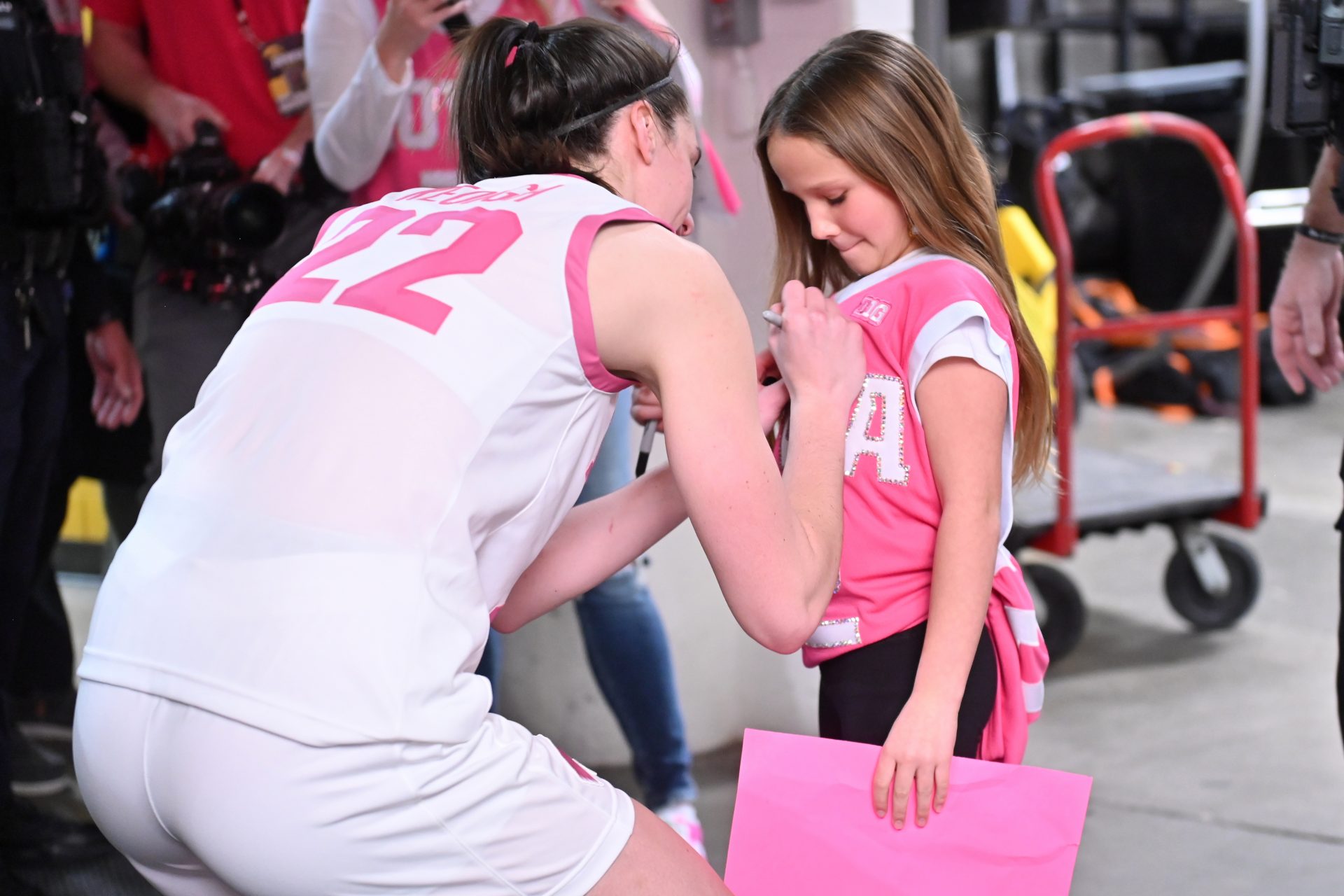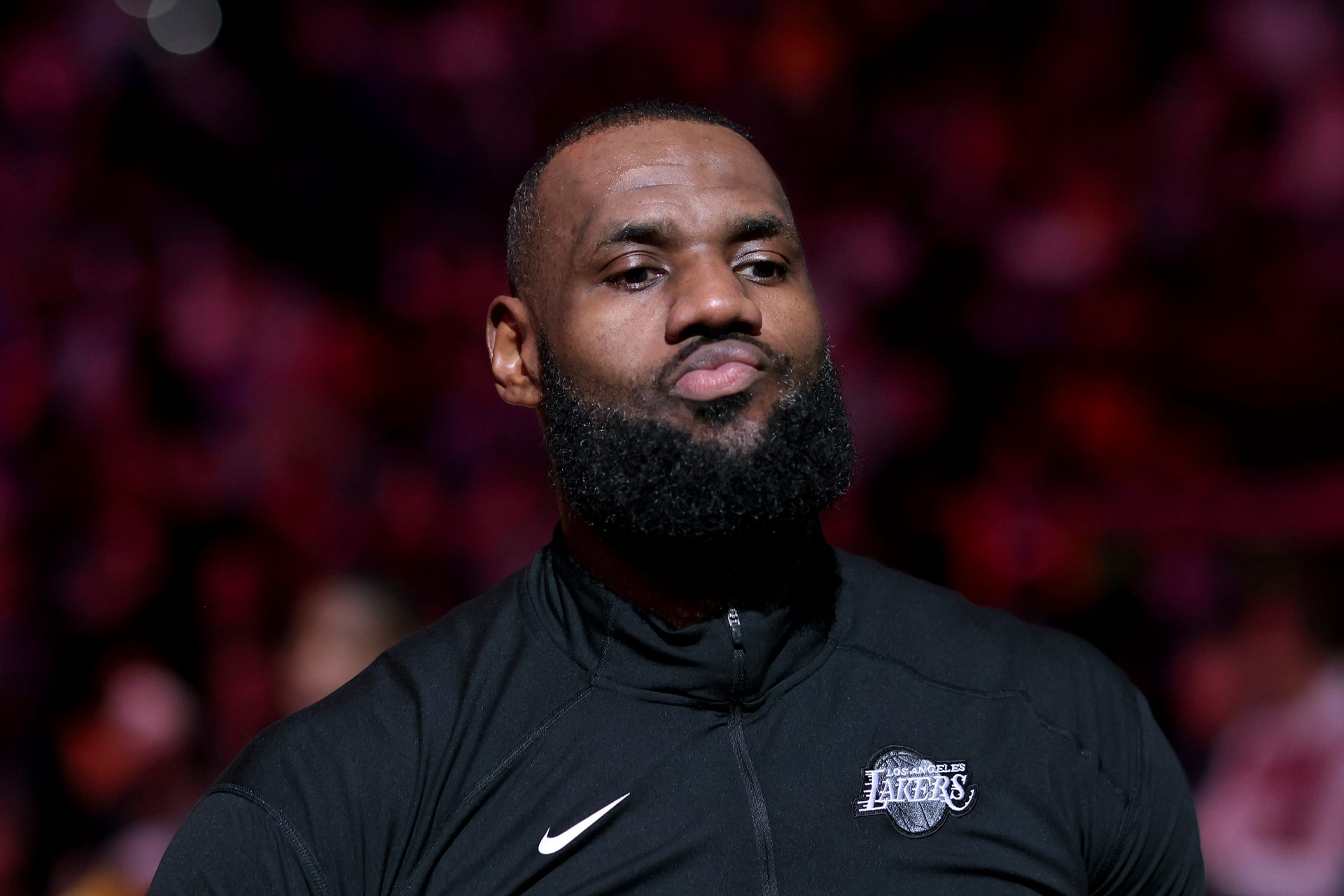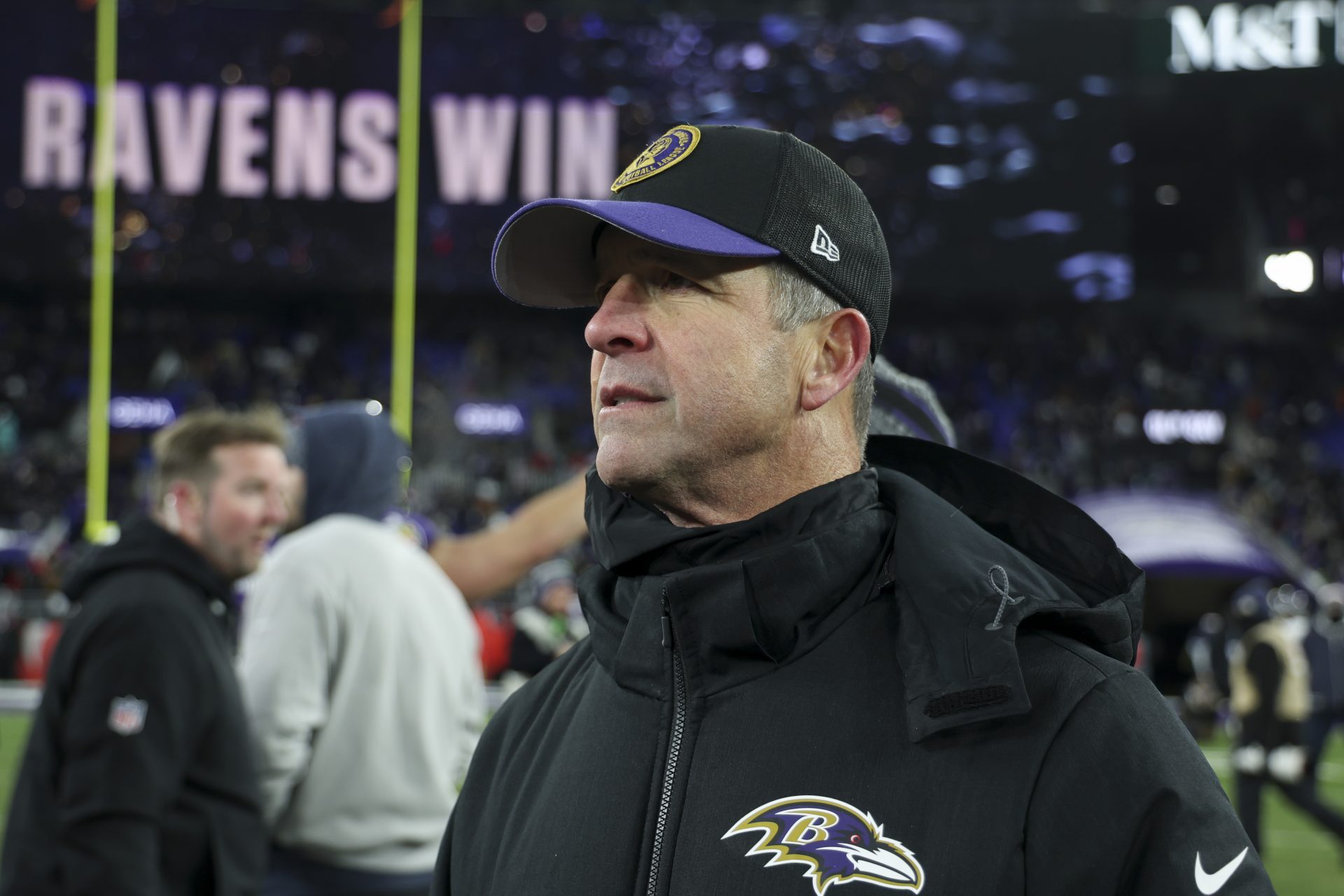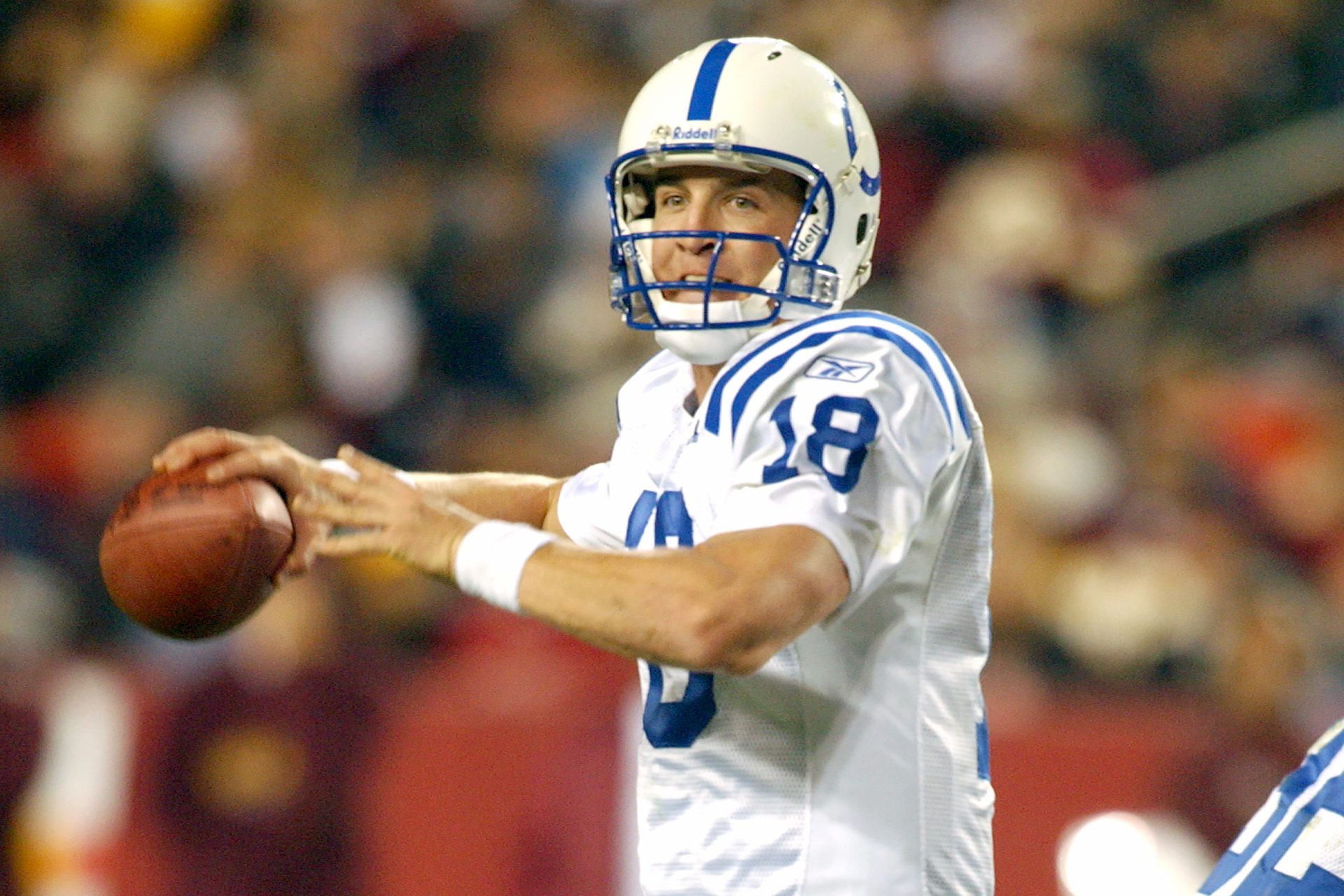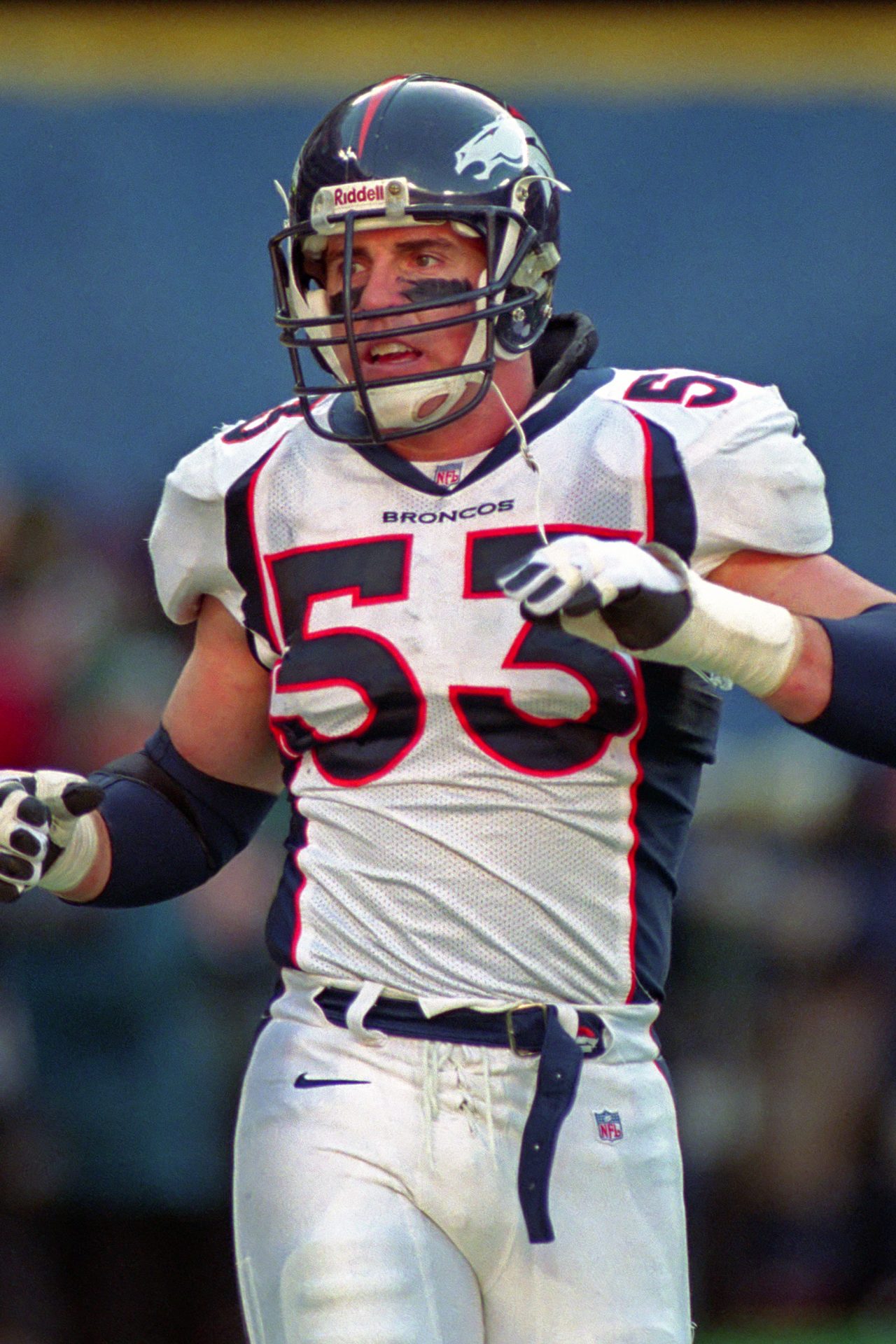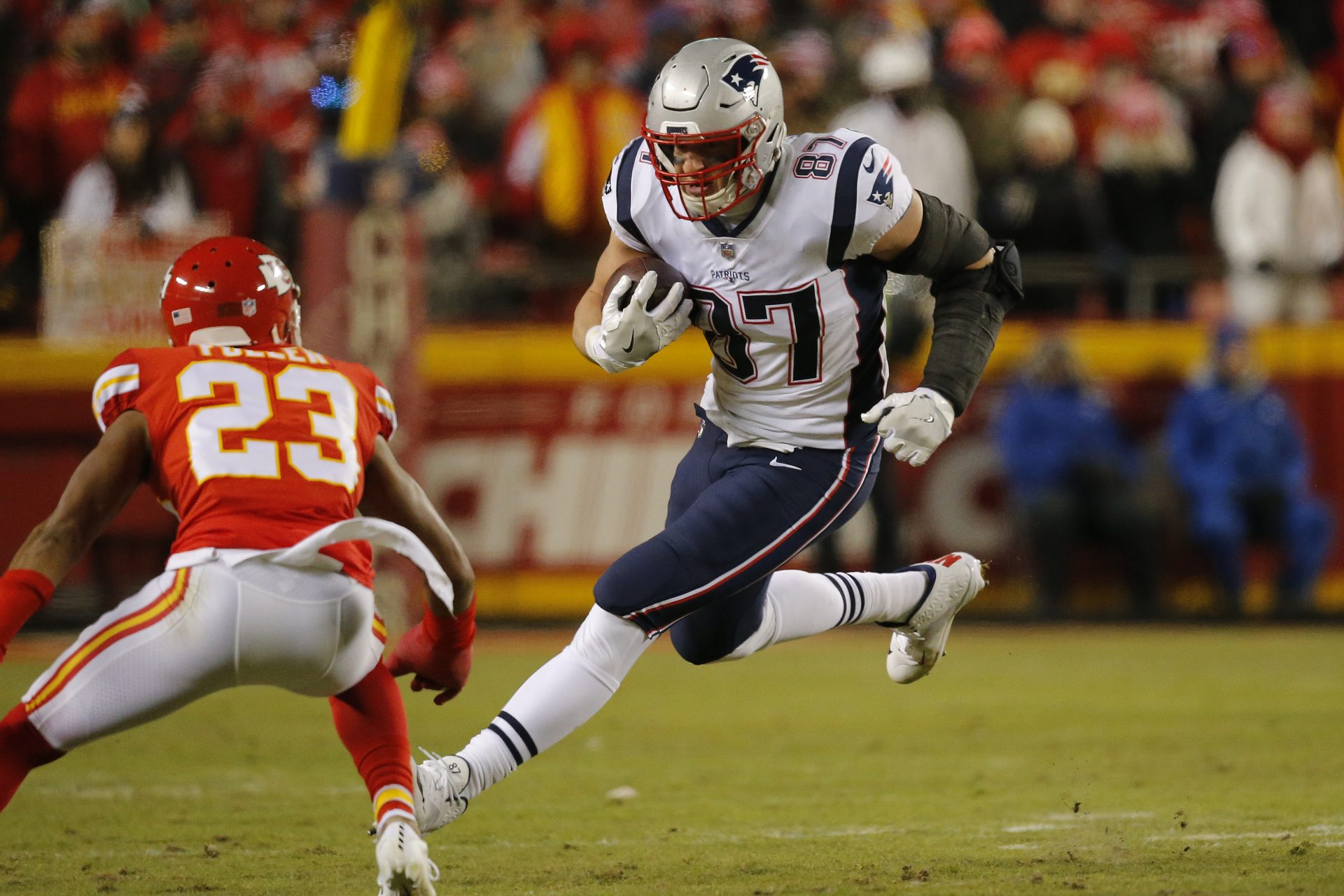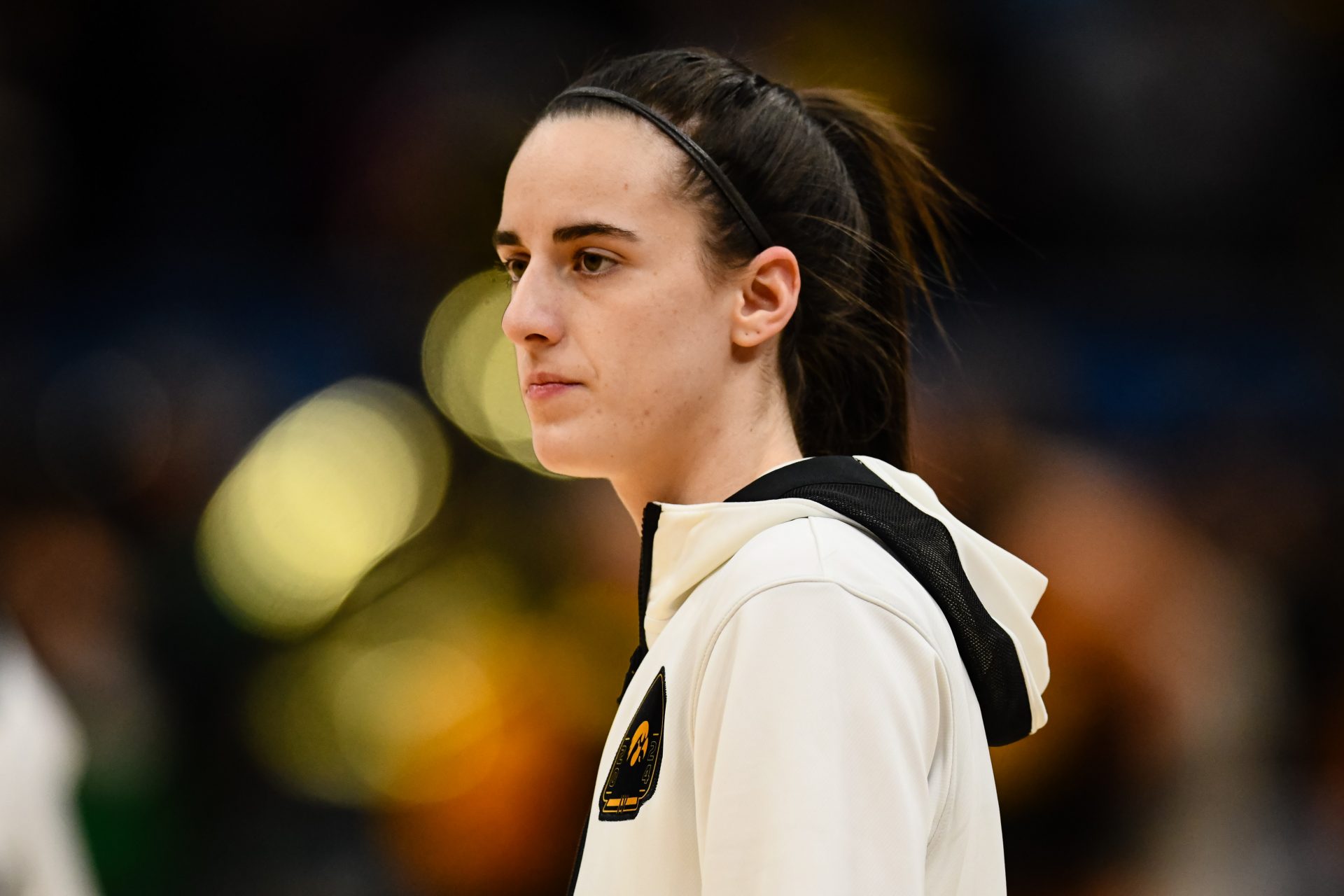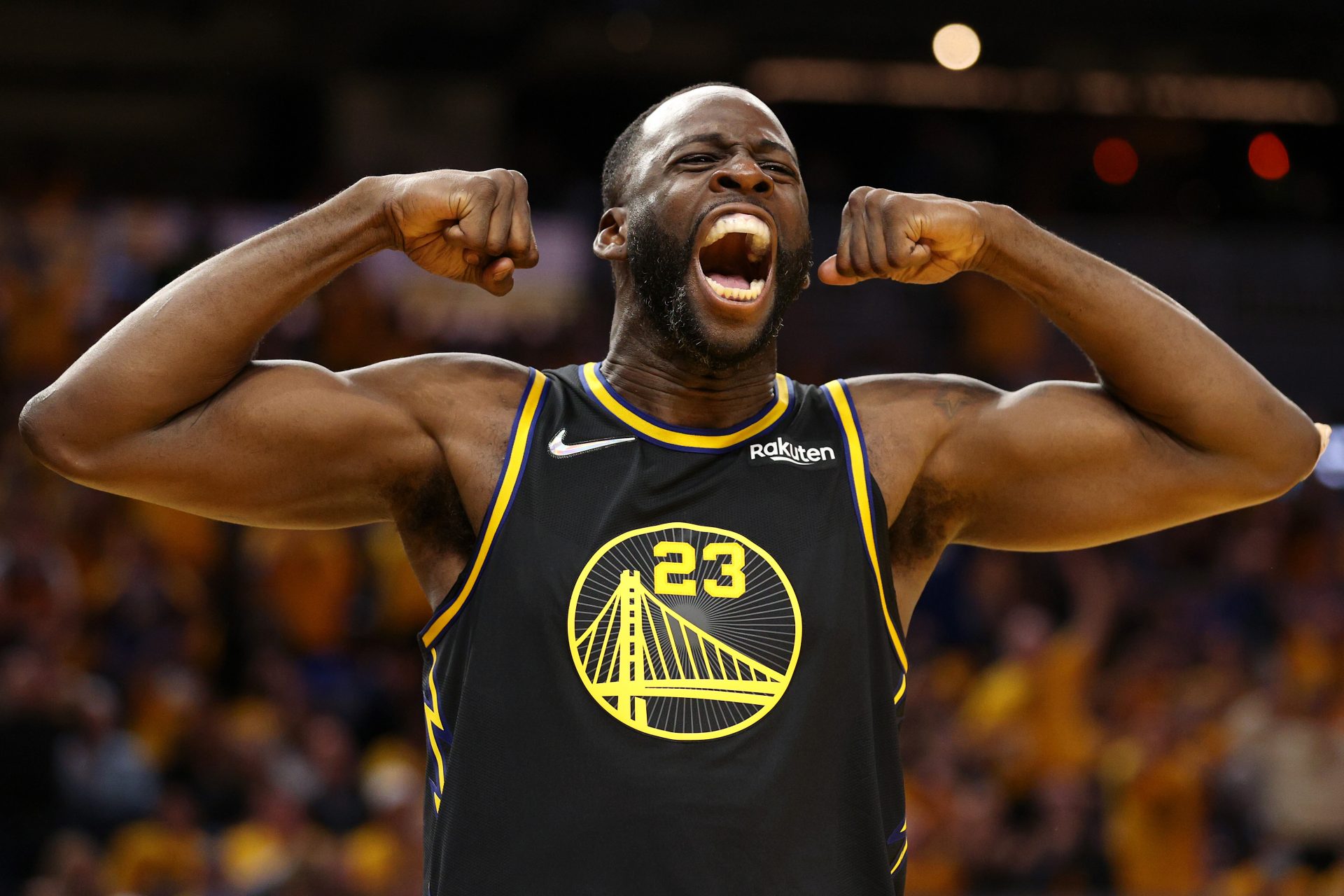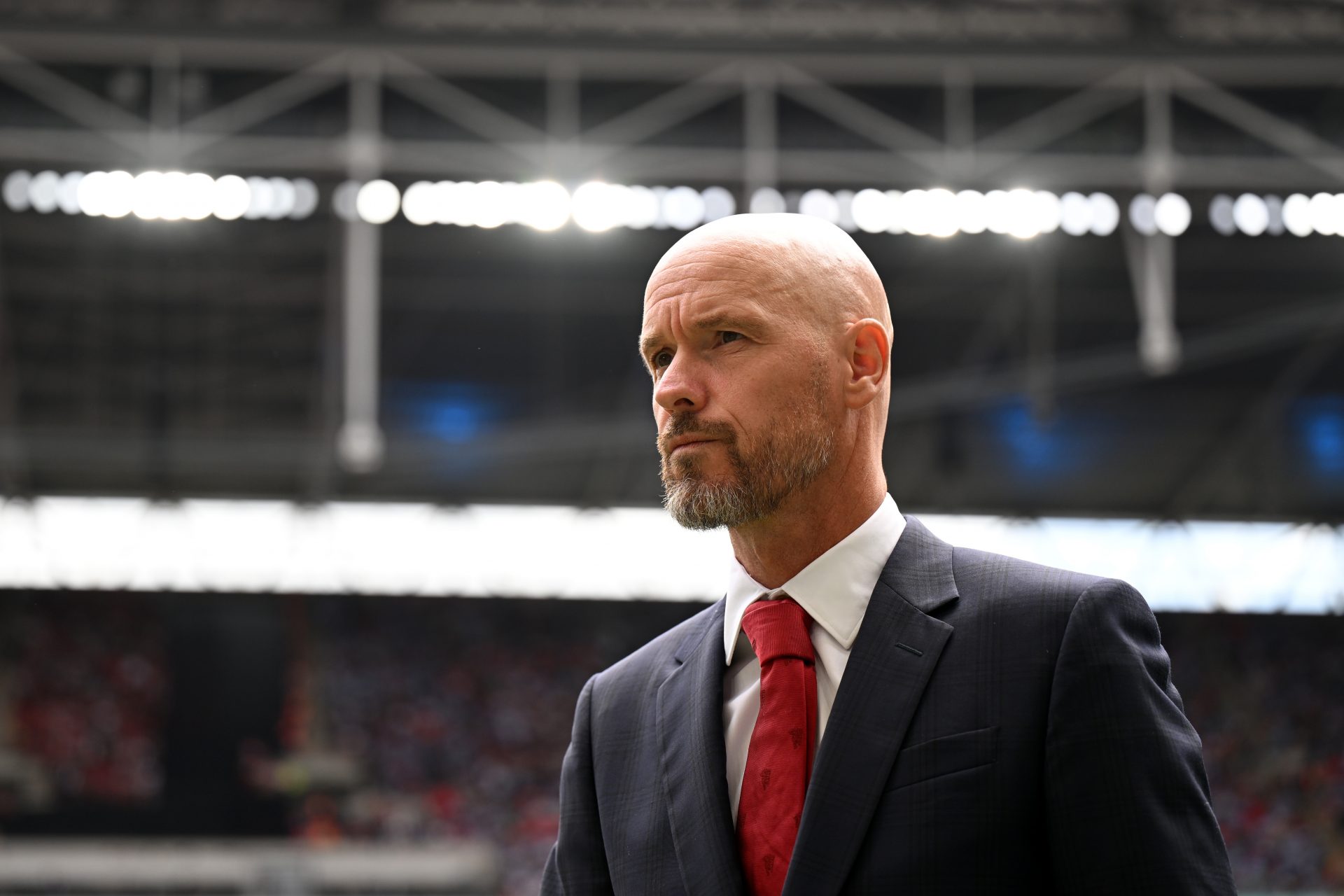Caitlin Clark's success got seriously out of hand during the WNBA playoffs
During an end-of-season press conference, Indiana Fever superstar Caitlin Clark was asked about some uncomfortable narratives that have swirled throughout the course of her rookie season.
As captured by Yahoo Sports, Clark said, "Nobody in our league should be facing any sort of racism, or hurtful, disrespectful, hateful comments and threats. Those aren't fans, those are trolls, and it's a real disservice to the people in our league."
Clark has taken the WNBA world by storm, putting up numbers that haven't been seen in women's basketball history. This meteoric rise has also made her a polarizing figure in more ways than one. We'll examine how Clark's presence and prominence have initiated many uncomfortable conversations. All statistics are sourced from Basketball Reference.
Want to see more like this? Follow us here for daily sports news, profiles and analysis!
Clark's exemplary skill set has helped the WNBA set viewership records this season. With that said, the commentary about her has not just been limited to her production on the floor. Many have taken stock of the Clark phenomenon by the cultural impact they believe it has with regard to her being a white superstar.
Early in the 2024 WNBA season, Caitlin Clark was on the receiving end of a flagrant foul from Chennedy Carter of the Chicago Sky. It was viewed by a lot of people as a "welcome to the league" moment for the heralded rookie. However, it took on greater significance for different audiences, as it seemed like Clark was receiving preferential treatment from the league.
Word in Black's website wrote early in the 2024 WNBA season that "we can't move on because America wants to protect Clark from the competition (a league of mostly black women) she's playing against." They also wrote, "we can't move on because the Chicago Tribune's editorial board irresponsibly and unequivocally compared Carter's foul to an assault."
The Philadelphia Citizen believes that all rookies have to pay their dues in the WNBA, not just Clark. They pointed out that A'ja Wilson and Indiana Fever star Aliyah Boston had to absorb physical contact when they first entered the league. They also noted that Kelsey Plum was elbowed in the stomach by Diana Taurasi, the former and the latter being white players.
A'ja Wilson of the Las Vegas Aces has accomplished almost everything in the sport, and she believes that racism has certainly reared its head in the WNBA. She told The Philadelphia Citizen, "I think a lot of people may say it's not about black and white, but to me, it is. You can be top notch at what you are as a black woman, but they don't see it as marketable."
NBC Boston noted the differences in attention and treatment Clark received compared to her popular rookie counterpart, Angel Reese. Clark's first preseason game was streamed by the WNBA, but Reese's was not. The Indiana Fever star received a lucrative endorsement deal from Nike, while other established black stars weren't offered such an opportunity.
The Tennessean's Andrea Williams wrote that "Caitlin Clark's whiteness makers her more marketable. That's not racist. It's true."
Medium's Allison Wiltz wrote, "Even in a sport like professional basketball, where the vast majority of players are black, they find a way to elevate their heroes as if they are inherently superior. We can see this phenomenon in the way sports commentators and fans have elevated Caitlin Clark... as the 'great white hope' of the WNBA."
Want to see more like this? Follow us here for daily sports news, profiles and analysis!
With the volume and passion of the conversation taking place, it is hard for Clark herself to ignore this. Progressive Magazine's website quoted her as saying, "The women in our league deserve the same amount of respect, so people should not be using my name to push those agendas."
University of Connecticut college basketball star Paige Bueckers will be in the WNBA soon enough, and she's been outspoken about the treatment of black players. "They (black female players) don't get the media coverage that they deserve. They've given so much to the sport, the community and society as a whole and their value is undeniable."
Arizona State sports historian and clinical professor Victoria Jackson believes Clark's skin color does help her popularity. She told NBC Boston, "There are basketball reasons but there are also racial reasons for why Clark has been able to kind of break off into a completely different stratosphere from players that came before her."
In addition to her ability as a shooter and a passer, Clark's demeanor on the court has been a story during her rookie WNBA season. She's danced on the precipice of discipline, receiving technical fouls for consistent complaining to the referees. According to the US Sun, a referee even accused Clark of being disrespectful.
Some feel that if Clark's temperament was exhibited by a black player, that athlete would be viewed as undisciplined and out of control. The New York Post wrote, "If Reese talks trash, it's viewed as unsportsmanlike. If Clark does it, she's being competitive."
With all of these undertones emerging, the WNBA has raked in money the likes of which they haven't seen before. Yahoo Sports believes that Clark's presence in the league helped them secure the $2.2 billion television rights deal that was signed in July 2024.
Marketing Brew's website called Caitlin Clark an advertiser's dream, and that was before she ever made the WNBA. Brandi Ray of Gatorade's consumer engagement team told the site, "She literally is one of the highest-engaged athletes that we have on our roster, across our channels."
Want to see more like this? Follow us here for daily sports news, profiles and analysis!
More for you
Top Stories



